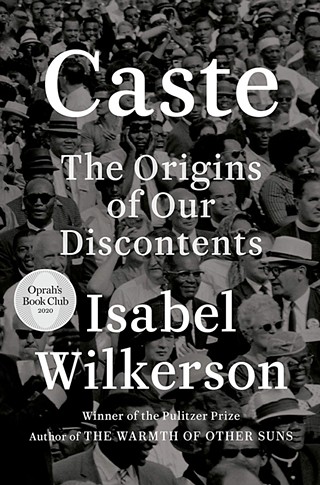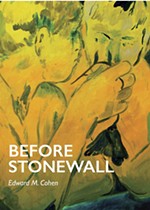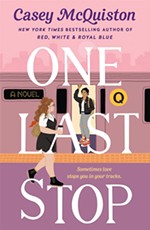Book Review: Caste: The Origins of Our Discontents by Isabel Wilkerson
In her second book, the author of The Warmth of Other Suns examines and breaks down the unacknowledged social structure baked into our country
Reviewed by Rosalind Faires, Fri., Nov. 13, 2020
Toward the end of her second book, author Isabel Wilkerson recounts a conversation with fellow historian Taylor Branch about what America's future holds. "[I]f people were given the choice between democracy and whiteness," Branch asks, "how many would choose whiteness?" It was an eerie question to ponder before the 2020 presidential election, and though neither Wilkerson nor Branch ventured an answer in Caste: The Origins of Our Discontents, the fact that it's posed so directly speaks to the urgency thrumming through this examination of the unacknowledged social structure baked into our country.
Over the course of Caste, Wilkerson unpacks U.S. history and its attendant upholding of white supremacy through the titular lens – that is, the "infrastructure of our divisions," how through the institution of slavery we established starkly different expectations about the way white people and Black people "should" live that endure to the current day. "Caste" is a word largely siloed in the American imagination to our understanding of hierarchies in India, but Wilkerson draws our attention to the times it has been used to describe our own society, dating as far back as 1874. Readers almost certainly come to Caste with some understanding of how racism undergirds so many of our national institutions, but Wilkerson's thesis is that racism and caste are two distinct things working in concert: racism being an ideology based on arbitrary physical characteristics to which we have assigned positive or negative meaning, a hatred that manifests in attacks and accusations of inferiority, and caste being a means by which we assign roles to everyone. We just happen to use the former as the guide for the latter.
Wilkerson presents a theory of how caste systems work by examining three countries – India, the U.S. (with special attention to slavery and Jim Crow), and Nazi Germany – and the unified ways they created and maintained class systems with deeply damaging and deadly results for the disenfranchised and unearned rewards for those deemed high-caste. Her aim is as ambitious as it sounds, which makes Caste's success as both a work of historical analysis and a tremendously engaging read all the more gratifying. Part of the accessibility and richness of the text come from the multiple points of entry Wilkerson offers to the idea of caste: Theatrical analogies (she has fun with the linguistic echoes of "cast" and "caste") sit side-by-side with comparisons to the natural world (she memorably likens the resurgence of nativist, pro-caste ideology to anthrax reemerging, still deadly, from Arctic ice). There's also the accessibility to self she offers; threaded throughout are personal stories about Wilkerson's experiences in the American caste system and her observations from her research for this book, which took her around the world.
It's clear that Wilkerson has tremendous belief in humanity – its capacity for warmth and ingenuity, as well as for cruelty and intentional ignorance – and that lends Caste a certain moral clarity and directive. Over and over, Wilkerson returns to the idea that we are not ourselves when we cooperate with a caste; we are participating in a lie either about what we are entitled to or about the limits of others' and our own abilities. Unraveling a belief may feel impossibly slippery, but by framing America's gross racial inequality as a system, she insists that it can be dismantled, the actors can learn new parts, and we can all move toward freedom.
Caste: The Origins of Our Discontents
by Isabel WilkersonRandom House, 496 pp., $32
Isabel Wilkerson appears at the 2020 Texas Book Festival in "The Origins of Our Discontents: Isabel Wilkerson in Conversation with Saeed Jones," Sat., Nov. 14, noon. For more information, visit www.texasbookfestival.org.











